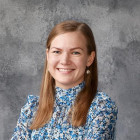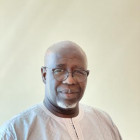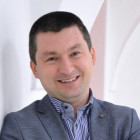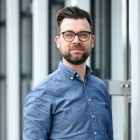Presentation Panel
Schools In Digital Transformation: Measuring Digital Maturity and Quality of Online Teaching
Date Friday, Nov 25 Time – Room: Koepenick I/II
The new educational landscape now sees digital learning as an integral part of the educational system. But we are not there yet. Not only the role of schoolteachers but also the role of school leaders has shifted and increased in complexity. In this session we will examine public and private initiatives, that have been launched recently to accelerate the digital transformation of schools and the quality of online learning and teaching. We will discuss how to set up a model of professional development that supports a transformative dialogue across the whole educational community, national and international policy makers included.

Ulla Harmaala
Pedagogical Coordinator, Kulkuri School of Distance Education (Kansanvalistusseura sr.), Finland
Ulla Harmaala, MA (Education) and online teacher, works as a Pedagogical Coordinator at Etäkoulu Kulkuri, i.e. Kulkuri School of Distance Education in Finland. Kulkuri is part of The Finnish Lifelong Learning Foundation, Kvs.
Ulla teaches online expatriate children and is also responsible for developing online teaching and learning at Kulkuri in collaboration with her colleagues. Her specific fields of expertise are teaching and learning in digital environments, distance education, and in-service teacher training.

Papa Youga Dieng
Program Coordinator, Organisation internationale de la Francophonie, Senegal
Papa Youga Dieng works for the Organisation internationale de la Francophonie (OIF) as Coordinator of the Initiative francophone pour la Formation à Distance des maîtres (IFADEM), in Institut de la Francophonie pour l'Education et la Formation , based in Dakar (Senegal), since 2017. IFADEM is a distance learning program for the capacity building of teachers in 15 francophone countries in Africa, Haiti and Lebanon.
Former Board member of Open Education Global, Dieng has a rich and long experience in the development and implementation of e-learning programs in Africa and across the Francophonie.
Prior to Join IFEF in Dakar, Dieng works in OIF’s Headquarter in Paris, was project Manager of the NEPAD e-Schools Initiative in the e-Africa Commission in Pretoria (South Africa), and Inspector General of National Education, responsible for ICT in Senegal. He is a former Professor of Physics and Chemistry, a trainer in the Senegalese in-service training institution (SFC), Head of the Science and ICT office in the Ministry of Education, and he was also the Coordinator of RESAFAD.
Papa Youga Dieng is a citizen of Senegal. He holds a D.E.A. (Master’s) in Education from Rouen University, France, the DUTICEF, Louis Pasteur University of Strasbourg, (now a Master’s in ICT in Education), a certificate for teaching in secondary schools, FASTEF University Cheikh Anta Diop of Dakar, Senegal, an a B.Sc. in Physics and Chemistry from the University of Cheikh Anta Diop, Senegal

Igor Balaban
Vice-Dean for Science, International Cooperation and Projects, University of Zagreb, Faculty of Organization and Informatics
Igor Balaban is Associate Professor at FOI and Head of Laboratory for advanced technologies in e-learning. He participated in several European and national projects, coordinated two of them (LLP, Erasmus+) and locally coordinated Horizon 2020 project.
He authored and co-authored 30+ scientific and professional papers and cooperates with European Commissions’ Joint Research Centre as an external expert for DigComOrg & DigCompEdu frameworks and SELFIE tool. He organized and conducted dozens of workshops, talked at several dozen conferences, and was invited speaker at some of them. He is also a reviewer for several highly respected journals such as Computers & Education, International Journal of ePortfolio and International Journal of Information Systems.
His main field of interest is technology supported learning with special focus on adaptivity and personalization in learning environments and digital transformation of educational organizations. He also has a traceable scientific record in assessing the successful implementation of information systems.
Moderator

Frank van den Ende
Innovation Manager, Gilde Opleidingen, Netherlands
Frank van den Ende has broad experience in education as a teacher, innovation manager, designer, and educational scientist. Frank's mission is to find the right balance between the needs of learners, society, technology, and the professional field.
Frank is the author of the book "Redesign the school" and one of the founders of the Educational Design Expedition. Both focus on supporting teachers in taking ownership of their own educational design.
Developing the Quality of Online Courses: How To Create A Manual for Online Teaching and Learning?, Ulla Harmaala
This presentation gives an insight into the quality improvement process of online teaching at the Kulkuri School of Distance Education, which is part of the Finnish Lifelong Learning Foundation.
Our school is an online elementary school for Finnish expatriate children. Due to the implementation of a new Learning Management System, our previous Quality Manual needed an update and in 2021 we started a new quality process.
The aim was to unify practices and ensure the quality of our online courses, while improving learning equality from a student perspective. In addition, we wanted to facilitate the task of teachers by providing them with a user-friendly practical tool for both self- and peer-evaluation. The goal was to get a thorough understanding of the quality standards while also creating guidelines to improve the courses.
Concurrently with the quality work, we were producing a new Kulkuri Study Manual for students and implementing accessibility standards throughout our online courses. Because all of these development activities are connected, it was crucial to work on all three side by side. Our direction was to create a manual with coherent guidelines, and to make our understanding of quality in online teaching and learning visible and transparent.
It was vital for us that the teachers themselves worked on the Kulkuri Manual. When required, they were supported by the school management. By involving teachers in the process the adaptation of common practices becomes natural. We had about 10 teachers with diverse backgrounds actively involved in the Development Team.
The main discussions and creation of the framework took place within the Team. We then divided them into smaller groups who all worked with specific, more detailed topics. After the small group sessions, all the topics were once again discussed by the whole Team. The draft was presented to an external group of experts whose involvement was included in the process. The result was an updated Kulkuri Manual.
The Kulkuri Manual contains checklists for various aspects of online learning, e.g., the Content and Structure of the Course, Real-Time Online Lessons, Interaction, and Online Pedagogy. The updated Kulkuri Manual was introduced to the whole teaching staff in May 2022. The next phase of the process is the implementation of the Manual during the school year 2022-2023. The first user experiences have been very positive.
During this session, we will explain the phases of our process and present some example sections of the Manual. Although the manual is written in Finnish, you will get an insight into the process that might be useful for other organisations as well.
In the session we will also discuss some of the challenges we faced when creating the Manual. For example, when planning quality work in your organisation, it is essential to define the needs of the organisation, to allocate sufficient time for quality work and to assemble a team which represents a wide range of perspectives.
If you want to improve the quality of online teaching and learning in your organisation, come and join us in this session!
Overview
- Obtain a model for quality work that is easy to modify for your organisation’s needs.
- Acquire new insights on how to commit the staff for the development work.
- Get insight into good practices about developing a teacher-to-teacher manual for online teaching and learning.
Digital Transformation of Schools in Croatia, Igor Balaban
This presentation will highlight the main findings of a large-scale research on establishing and maintaining an ecosystem for digitally mature schools and an online self-assessment tool that was developed for schools to assess their progress into digital maturity.
In the past few years Croatia has been awarded with European funds to establish and maintain an ecosystem for digitally mature schools. As a part of this project, the Framework for Digitally Mature Schools has been developed based on the DigCompOrg 2.0. The Framework is accompanied with the online assessment instrument “SELFIE” that has been used by more than 1.300 schools in Croatia to self-assess themselves and make progress in their levels of digital maturity.
Such large-scale research has not yet been recorded in Europe. For the first time, the results from Croatia will be publicly presented with a sample of more than 1.300 Croatian schools .
This presentation will highlight the main findings of this large-scale research and will reflect on the Framework and the online assessment tool. We will also explain the guidance that schools receive based on their evaluation and showcase our intelligent tutoring system that assists schools in their journey to digital transformation. Finally, we will present the results of the self-evaluation of the main domains of digital maturity and the effects that the elements of digital maturity have on each other.
Many other schools and organisations are now using the SELFIE tool for self-assessment. Case examples of the activities undertaken to improve the digital maturity of schools can help other teachers and managers to re-use the ideas in their own context, as the main concept is transferable to all levels of education.
Overview
- Recognise the need for digital transformation of schools.
- Explain the digital maturity of an educational institution and identify its main domains.
- Explore an online assessment instrument on digital maturity.
- Discover an intelligent tutoring system for digital transformation.
Increasing Access To Quality In-Service Teacher Training Through Mobile Learning in African Rural Areas, Papa Youga Dieng
This presentation shows the development and implementation of a large-scale mobile learning program for primary school teachers and principals in Burkina Faso, Ivory Coast, Mali and Niger.
During the COVID-19 pandemic and in a context of insecurity, especially in the Sahel region, it became difficult for the Organisation internationale de la Francophonie (OIF) to organise face-to-face or even blended learning in the framework of their IFADEM (Initiative Francophone pour la Formation à Distance des Maître) initiative to enhance the quality of teaching and learning by building the capacities of teachers
Together with AUF (Agence Universitaire de la Francophonie) and with the support of IFEF (Institut de la Francophonie pour l’Education et la Formation), OIF developed an online training for in-service primary school teachers in 4 countries (Burkina Faso, Ivory Coast, Mali, Niger), based on Moodle (Platform and App), 3G/4G connectivity and BYOD.
The first phase of the programme targeted 2.000 teachers to be trained on 4 modules within 5 months. Before the first phase even ended, the project was already scaled up in Ivory Coast for 1.000 school principals.
Overview
- How to develop an online training for in-service primary school teachers through 3G/4G connectivity and BYOD.
- Content development, distance training of the trainers, technical matters, challenges and lessons learned.